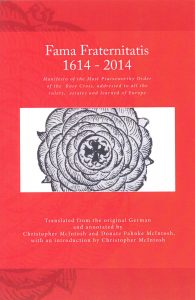Recently published by Inner Traditions
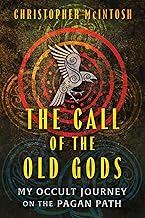
A SPIRITUAL AUTOBIOGRAPHY
Having spent the greater part of my life writing books on the world of the esoteric and works of fiction and biography, in this book I talk about my own life and spiritual path, and the roundabout journey has led me to the Pagan way. I describe how my writing and my spiritual quest have been paralleled by a career that has included periods as a journalist in London, a United Nations officer in New York and a UNESCO executive in Hamburg. I also include:
- Reflections on Paganism as a whole and its modern revival in Europe, North America and elsewhere.
- A discussion of various Pagan, esoteric and traditional practices, including Stav (a form of Nordic Tai Chi), sacred gardening, folk dancing, and seasonal rituals and ceremonies
- Accounts of my friendships and encounters with fascinating people – famous and less famous – whom I have encountered on my journey.
Published by Inner Traditions * Bear & Company
One Park Street, Rochester, VT 05767, USA
www.InnerTraditios.com
Also from Inner Traditions International:
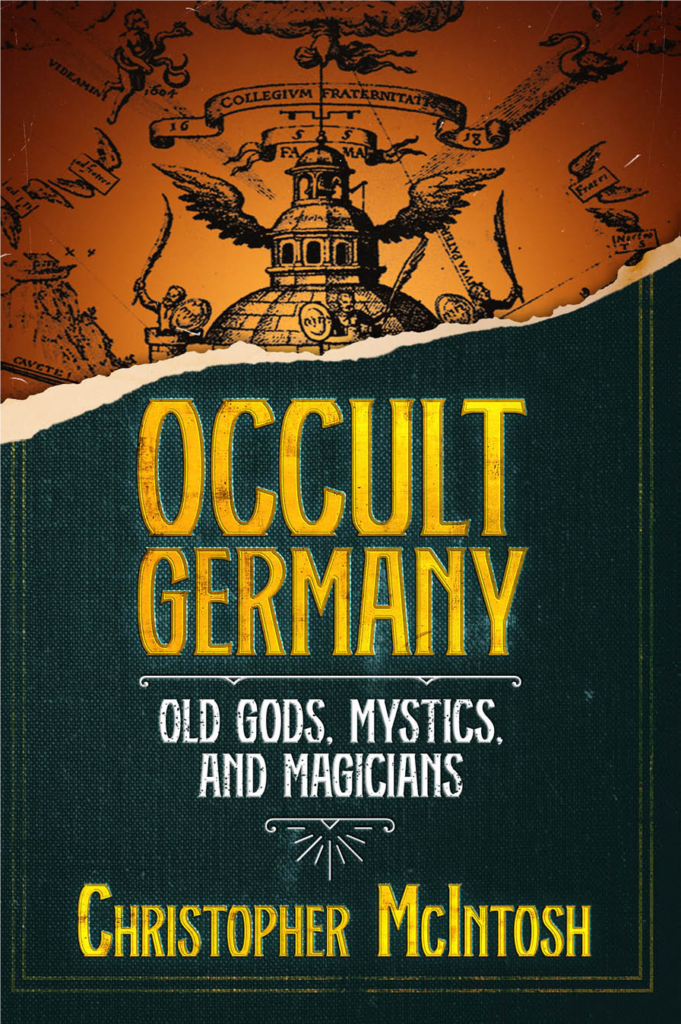
Pre-order from:
https://www.innertraditions.com/books/occult-germany
https://www.simonandschuster.com/books/Occult-Germany/Christopher-McIntosh/9781644117347
For further details, see “News”
OCCULT RUSSIA:
PAGAN, ESOTERIC AND MYSTICAL TRADITIONS
by Christopher McIntosh
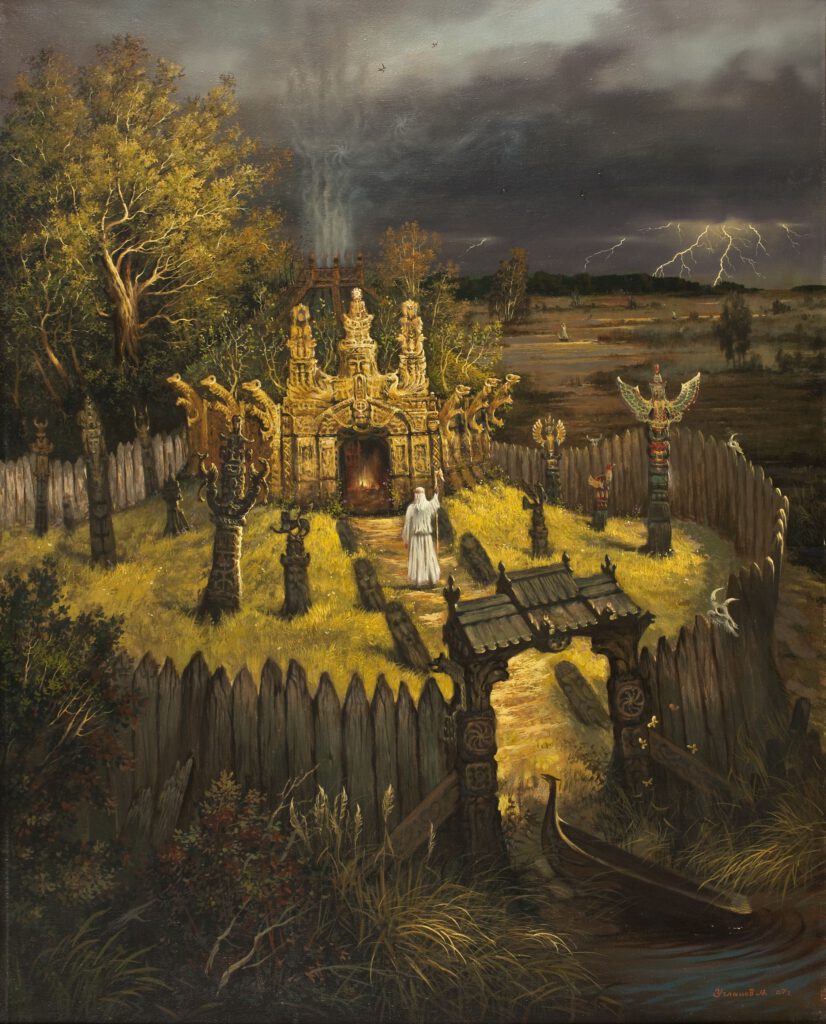
At a time when attitudes to Russia are often marked by a mood of accusation and mistrust, this book looks behind the image of the country touted in the western media and explores the currents of mysticism, myth, magic and spiritual to which the Russian soul has always been susceptible, currents that are now moving again with the force of a great river, long ice-bound during the communist years. In the post-Soviet era the Russian people are seeking new – or often old – ways of giving meaning to their lives. This search has given rise both to a revival of ancient spiritual traditions and to a plethora of new movements, cults, sects, -isms and -ologies. In the opening chapters the author explores the precursors of these movements in the “Silver Age” before the Revolution, and describes how, suprisingly, many of them survived through the early post-revolutionary years, only to be crushed and decimated during the Stalinist terror.
The book goes on to discuss the reawakening after 1989 with the resurgence of the Orthodox Church and the burgeoning of alternative forms of spirituality, ranging from esoteric and New Age movements to new conservative tendencies and a glorification of the ancient Russian past. A chapter is devoted to the controversial Book of Veles, branded by some as a forgery and hailed by others as an epic chronicle of the Slavic people. Further chapters describe how millions of Russians are turning or returning to the Orthodox Church, while paganism and neo-paganism are also enjoying a revival, including the indigenous pre-Christian customs of the Mari people and the shamanic traditions of Siberia. The author also speaks about indigenous and alternative forms of medicine, about Russian attitudes to love and sexuality, and about the interface between spirituality and the arts. A chapter is devoted to the Russian language, its unique qualities as a spiritual medium and its role in shaping the Russian soul.
Publication date: December 20
Obtainable from:
https://www.barnesandnoble.com/w/occult-russia-christopher-mcintosh/1141115589?ean=9781644114186
https://www.amazon.com/Occult-Russia
https://www.innertraditions.com/books/occult-russia
https://www.booksamillion.com/p/Occult-Russia/Christopher-McIntosh/9781644114186?id=8566132722941
https://bookshop.org/books/occult-russia-pagan-esoteric-and-mystical-traditions/9781644114186
http://simonandschuster.co.uk/books/Occult-Russia/Christopher-McIntosh/9781644114186
Beyond the North Wind
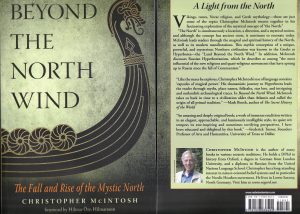
An exploration of the mystique of the North from ancient times to the present day.
Publisher: Weiser Books, Newburyport, Massachusetts, USA.
ISBN:978-1-57863-640-2.
Eliphas Lévi and the French Occult Revival
(Revised edition, Albany, New York: SUNY Press, 2011)
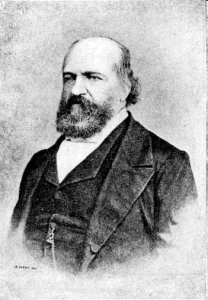
This classic study examines a remarkable era in the istory of occultism. Its central focus is Eliphas Lévi (1810-1875), would-be priest, revolutionary socialist, utopian visionary, artist, poet and, above all, author of a number of seminal books on magic and occultism. It is largely thanks to Lévi that the Tarot is so widely used today as a divinatory method and a system of esoteric symbolism. The magicians of the Golden Dawn were influenced by him, and Aleister Crowley believed himself to be Lévi’s reincarnation. The book is not only about Lévi and his era but also about the remarkable figures who preceded and followed him – the esoteric Freemasons and Illuminati of the 18th century, and later figures such as the Rosicrucian magus Joséphin Péladan, the occultist Papus (Gérard Encausse) and the writer Joris-Karl Huysmans, whose work drew strongly on occult themes. These people were avatars of a set of traditions which are now seen as an important part of the western heritage.
The Rosicrucians: The History, Mythology and Rituals of an Esoteric Order
(Revised edition, Newburyport, Massachusetts: Red Wheel/Weiser, 1998)
This book traces the history of Rosicrucianism from its mysterious origins in 17th-century Germany up to the various revivals and offshoots and orders that have plugged into the Rosicrucian legend, such as the Hermetic Order of the Golden Dawn.
The Rose Cross and the Age of Reason: Eighteenth-Century Rosicrucianism in Central Europe and its Relationship to the Enlightenment
(Revised edition, Albany, New York: SUNY Press, 2011)
The Golden and Rosy Cross order. The order stands out as one of the most fascinating and influential of the high-degree Masonic and Illuminist groups that mushroomed in Europe from the 18th century onward. Active mainly in the German-speaking lands, it recast the original Rosicrucian vision and gave it renewed vitality. At one point it became politically influential when the Prussian King, Frederick William II, was a member of the order. Historians have often perceived the Golden and Rosy Cross as having had a conservative, anti-Enlightenment agenda, but this study—drawing on rare German sources—shows that the matter was more complex. The members of the order practiced alchemy and operated a degree system that was imitated by later orders, such as the Golden Dawn. Like the latter, the Golden and Rosy Cross exerted a wide and enduring cultural influence.
Gardens of the Gods
(London: I.B.Tauris, 2005)
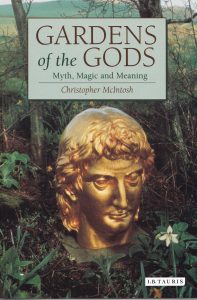
This book is an invitation to look at and create gardens in a new way – or rather a very old way that has been widely forgotten. It theme is the garden as a sacred space, an outdoor temple carrying an intentional message: religious, mystical, poetic or philosophical. A chapter gives some practical ideas for creating one’s own sacred or symbolic garden, whether in a space of many acres or a pocket-handkerchief back yard. An appendix provides a list of plants and their symbolic meanings, and the illustrations include some of the most beautiful and richly symbolic gardens in the world.
The Swan King: Ludwig II of Bavaria
(London: I.B. Tauris, 2012)
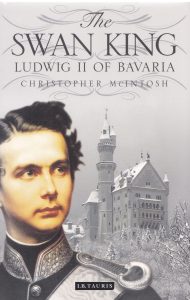
The Swan King is the biography of one of the most enigmatic figures of the 19th century, described by Verlaine as ‘the only true king of his century’. A man of wildly eccentric temperament and touched by a rare, imaginative genius, Ludwig II of Bavaria is remembered both for his patronage of Richard Wagner and for the fabulous palaces which he created as part of a dream-world to escape the responsibilities of state. In realization of his fantasies, he created a ferment of creativity among artists and craftsmen, while his neglect of Bavaria’s political interests made powerful enemies among those critical of his self-indulgence and excesses. At the age of 40, declared insane in a plot to depose him, Ludwig died in mysterious circumstances.
Ian Hamilton Finlay – A Memoir
(Vanadis Texts, 2014. www.vanadis.org)
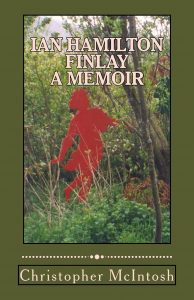
This is a personal portrait of the Scottish poet and artist Ian Hamilton Finlay, his life and work. It recounts Finlay’s emergence as an avant-garde writer and poet in the 1950s, the creation, together with his wife Sue, of his famous garden at his home Stonypath-Little Sparta in Lanarkshire, his espousal of the ideals of the French Revolution, his defence of classical values, his idiosyncratic form of paganism, his struggle against what he called the “secular terror”, his many battles. Having been seen by many as an enfant terrible, he was in his later years fêted by the establishment, given honorary doctorates and an honorary professorship, awarded a CBE and hailed as Scotland’s greatest artist. Today he has a world-wide reputation, and in 2004 a panel of artists and arts professionals voted the garden at Stonypath-Little Sparta the most important work of Scottish art. This lively personal tribute is a must for Finlay scholars and admirers.
